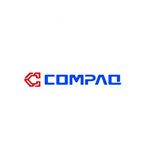-
Product
- Anti-Static, ESD, Clean Room Products
- Audio Products
- Battery Products
- Boxes, Enclosures, Racks
- Cable Assemblies
- Cables, Wires
- Cables, Wires - Management
- Capacitors
- Circuit Protection
- Computer Equipment
- Connectors, Interconnects
- Crystals, Oscillators, Resonators
- Development Boards, Kits, Programmers
- Discrete Semiconductor Products
- Embedded Computers
- Fans, Thermal Management
- Filters
- Hardware, Fasteners, Accessories
- Inductors, Coils, Chokes
- Industrial Automation and Controls
- Industrial Supplies
- Integrated Circuits (ICs)
- Isolators
- Kits
- Labels, Signs, Barriers, Identification
- Line Protection, Distribution, Backups
- Magnetics - Transformer, Inductor Components
- Maker/DIY, Educational
- Memory Cards, Modules
- Motors, Actuators, Solenoids and Drivers
- Networking Solutions
- Optical Inspection Equipment
- Optics
- Optoelectronics
- Potentiometers, Variable Resistors
- Power Supplies - Board Mount
- Power Supplies - External/Internal (Off-Board)
- Prototyping, Fabrication Products
- Relays
- Resistors
- RF/IF and RFID
- Sensors, Transducers
- Soldering, Desoldering, Rework Products
- Switches
- Tapes, Adhesives, Materials
- Test and Measurement
- Tools
- Transformers
- Uncategorized
- Manufacturer
- Request a Quote
- Quality
- SMT/PCBA
- Resource
- About Us












